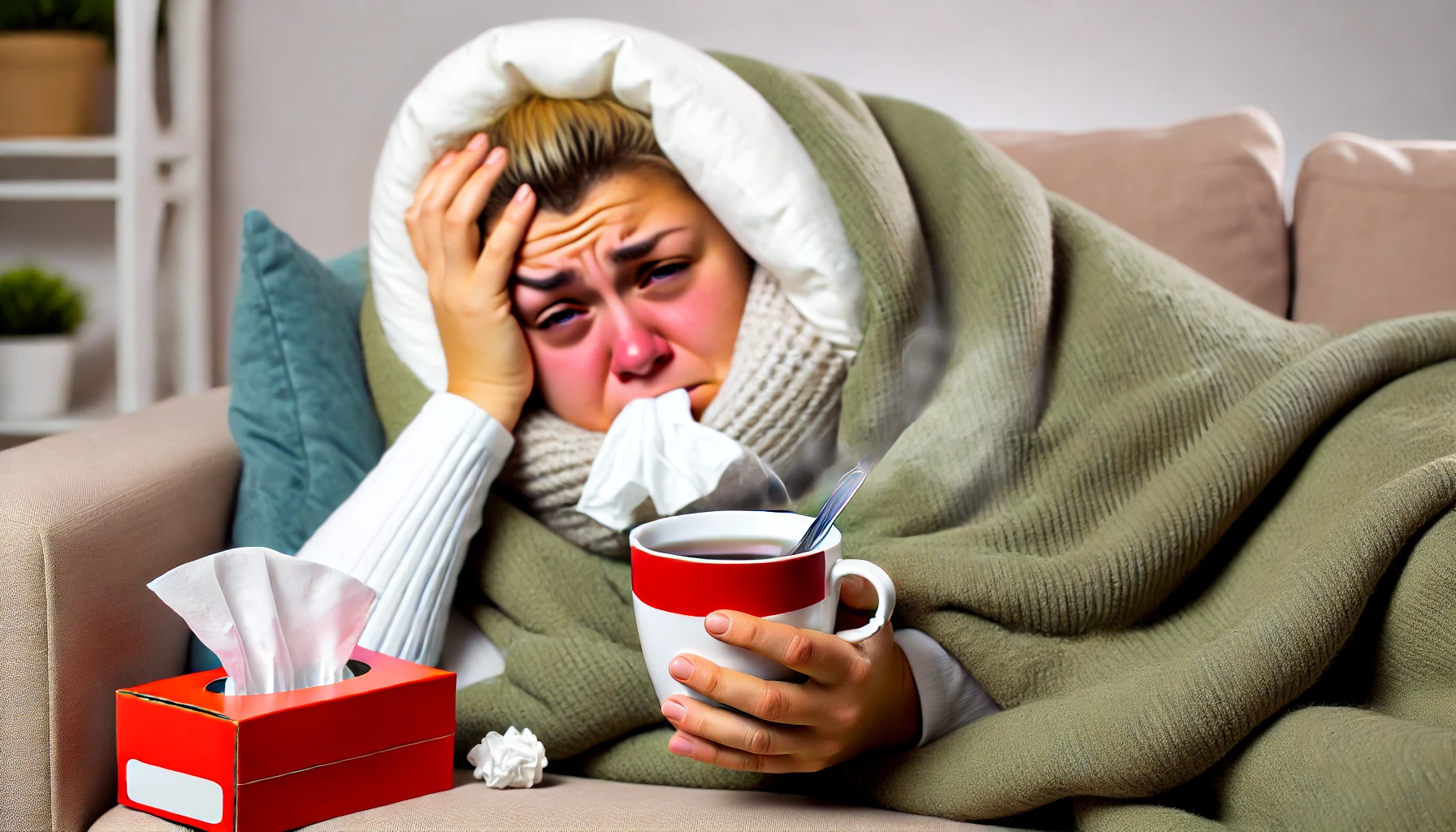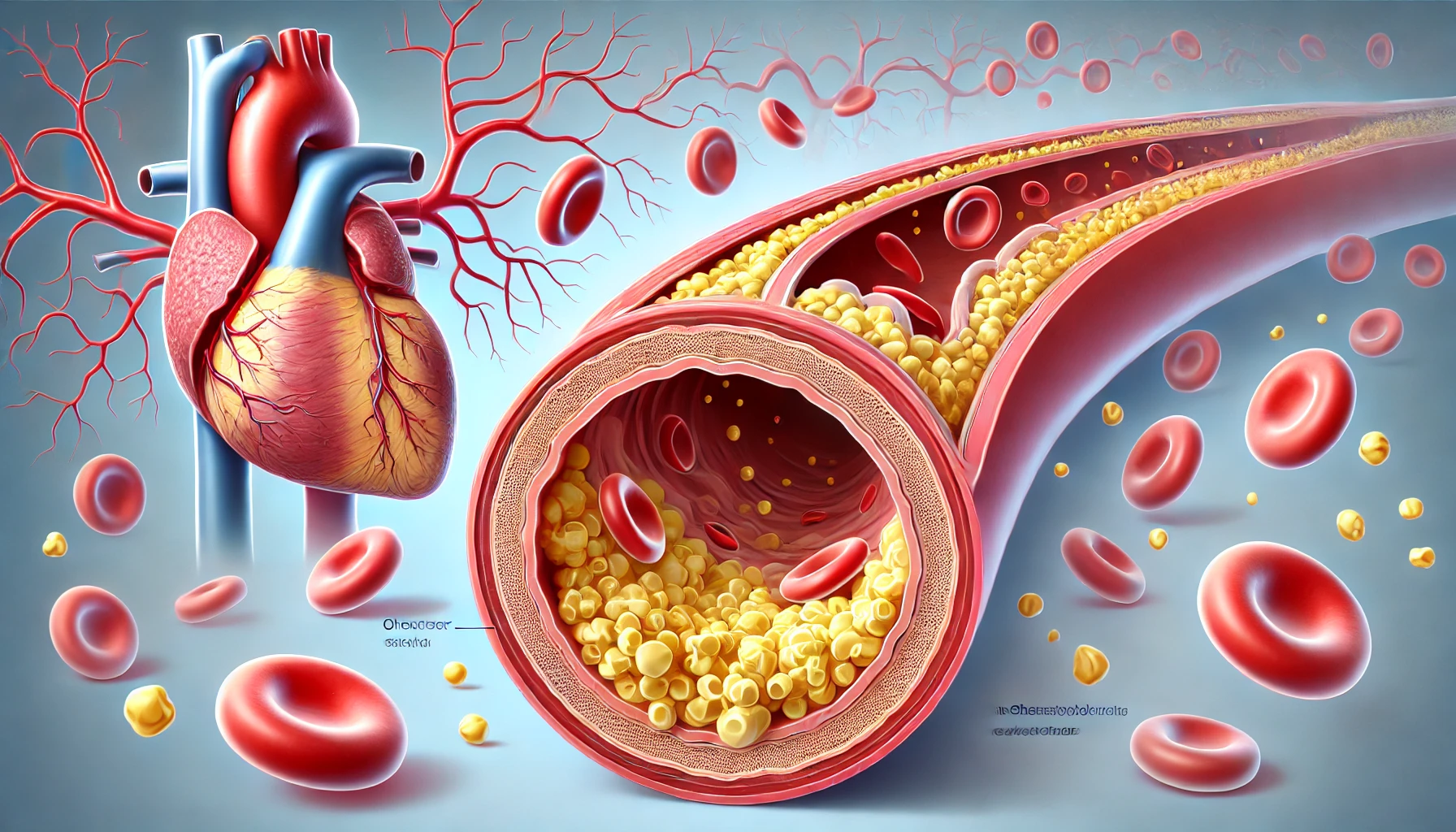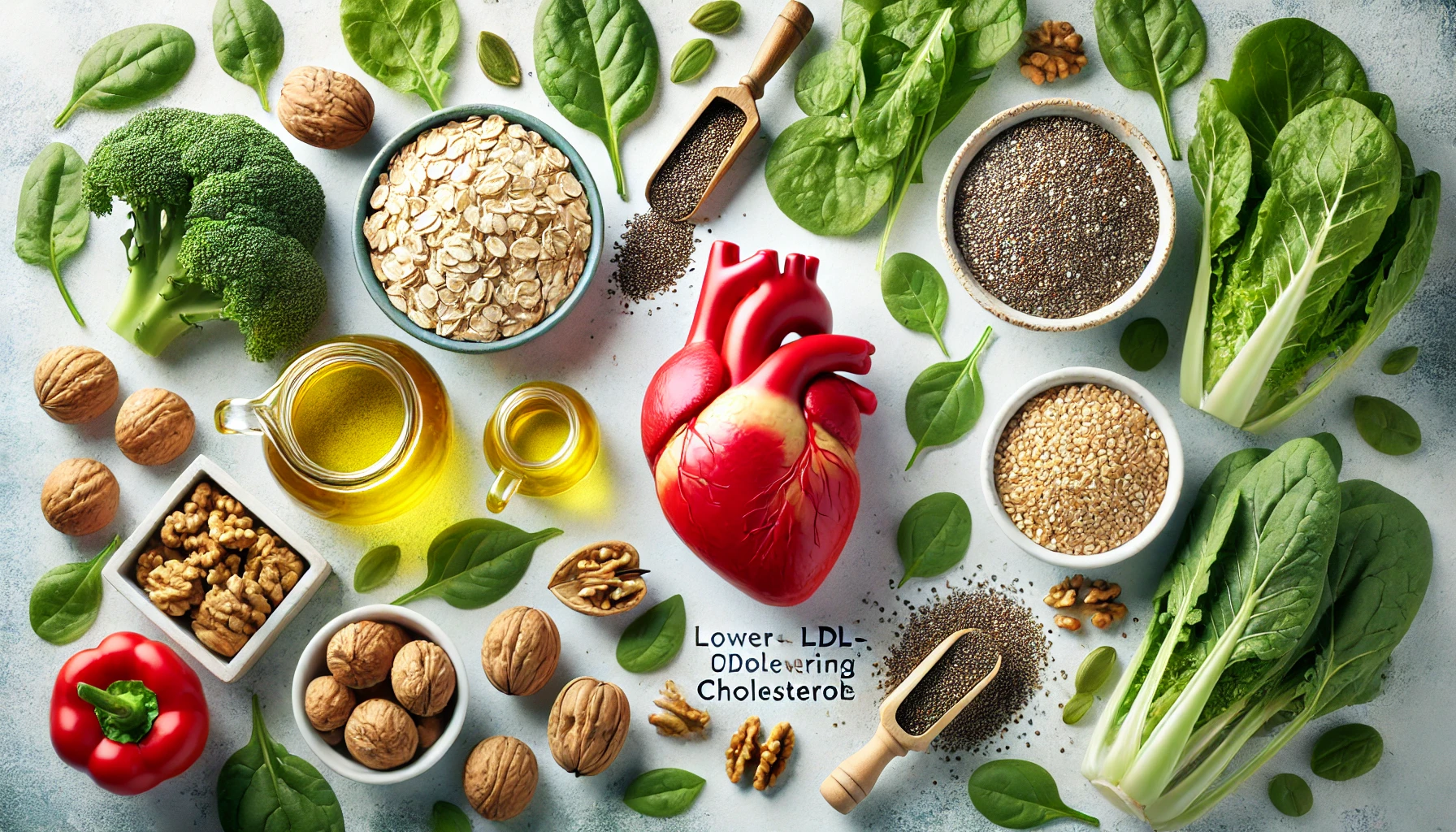
Important Points:
- Understanding LDL cholesterol and why it’s considered “bad”
- Dietary changes to reduce LDL levels naturally
- Lifestyle adjustments to support healthy cholesterol levels
- Importance of regular cholesterol monitoring for heart health
Understanding LDL Cholesterol and Its Impact on Heart Health
What is LDL Cholesterol?
Low-Density Lipoprotein (LDL) cholesterol, often referred to as “bad” cholesterol, is a type of cholesterol that can accumulate on the walls of arteries, forming plaque. This plaque buildup narrows the arteries, restricts blood flow, and increases the risk of heart disease, stroke, and other cardiovascular problems. Lowering LDL cholesterol levels is essential for heart health and can reduce the likelihood of serious health complications.
Dietary Tips to Lower LDL Cholesterol
- Eat More Soluble Fiber
- Sources of Soluble Fiber: Foods high in soluble fiber, such as oats, beans, lentils, apples, and citrus fruits, help lower LDL by binding cholesterol in the digestive system and preventing its absorption.
- How It Works: Soluble fiber dissolves in water and forms a gel-like substance that traps cholesterol, which is then removed from the body.
- Daily Goal: Aim for at least 5–10 grams of soluble fiber daily to see significant reductions in LDL cholesterol.
- Add Healthy Fats from Nuts and Seeds
- Nuts and Seeds to Include: Almonds, walnuts, chia seeds, and flaxseeds are rich in healthy fats and fiber, which can help reduce LDL cholesterol.
- How They Work: These fats can lower LDL by raising HDL (good cholesterol) and improving overall cholesterol balance.
- Tip: Snack on a handful of nuts daily or add chia or flaxseeds to smoothies, yogurt, or oatmeal for a heart-healthy boost.
- Choose Olive Oil Instead of Saturated Fats
- Why Olive Oil Helps: Olive oil is high in monounsaturated fats, which can reduce LDL cholesterol and protect the heart.
- How to Use It: Replace butter, margarine, and processed oils with olive oil for cooking, salad dressings, and drizzling over vegetables.
- Tip: Aim for around 2 tablespoons of olive oil daily for heart-healthy benefits.
- Incorporate Fatty Fish Rich in Omega-3s
- Fish to Eat: Salmon, trout, mackerel, sardines, and herring are high in omega-3 fatty acids, which reduce LDL cholesterol and support heart health.
- How It Works: Omega-3s help lower triglycerides, reduce inflammation, and may improve HDL cholesterol, balancing out the effects of LDL.
- Tip: Aim for at least two servings of fatty fish each week, or consider an omega-3 supplement if recommended by a healthcare provider.
- Avoid Trans Fats Completely
- Sources of Trans Fats: Processed foods, baked goods, fried foods, and margarines often contain trans fats, which raise LDL cholesterol significantly.
- How to Avoid Them: Check food labels for “partially hydrogenated oils” and avoid items that contain them.
- Why It Matters: Trans fats not only increase LDL but also lower HDL cholesterol, making them harmful to heart health.
- Eat More Plant-Based Foods
- Plant-Based Options: Legumes, tofu, vegetables, whole grains, and fruits are naturally low in saturated fat and help keep LDL levels low.
- How They Work: Plant-based foods provide fiber, antioxidants, and nutrients that support healthy cholesterol levels.
- Tip: Try a few meatless days each week or incorporate more plant-based protein sources like beans and lentils into your meals.
Lifestyle Changes to Lower LDL Cholesterol
- Engage in Regular Physical Activity
- Exercise Types: Aerobic exercises like walking, jogging, swimming, and cycling can increase HDL and help lower LDL cholesterol.
- How It Works: Exercise promotes heart health, improves circulation, and helps regulate cholesterol levels.
- Goal: Aim for at least 150 minutes of moderate exercise or 75 minutes of vigorous exercise weekly.
- Lose Excess Weight if Needed
- How Weight Loss Helps: Carrying excess weight, especially around the abdomen, can increase LDL cholesterol and raise heart disease risk.
- Strategies for Weight Loss: Focus on portion control, balanced meals, and consistent physical activity to achieve a healthy weight.
- Tip: Even a small weight loss of 5–10% of body weight can significantly improve cholesterol levels.
- Quit Smoking
- Why It Matters: Smoking damages blood vessels, lowers HDL cholesterol, and accelerates the buildup of plaque in arteries.
- How Quitting Helps: Within weeks of quitting smoking, HDL levels can improve, and heart disease risk decreases over time.
- Support for Quitting: Consider nicotine replacement therapy, support groups, or counseling if you need help quitting.
- Limit Alcohol Consumption
- Why Limit Alcohol: Excessive alcohol intake can raise triglycerides and LDL cholesterol.
- Healthy Limit: Moderate drinking is defined as up to one drink per day for women and up to two drinks per day for men.
- Tip: If you’re aiming to lower cholesterol, consider reducing alcohol intake altogether or opting for heart-healthy alternatives like herbal teas or sparkling water.
- Manage Stress Effectively
- Impact of Stress on Cholesterol: Chronic stress can increase cholesterol by affecting hormone levels, leading to higher LDL and triglycerides.
- Ways to Manage Stress: Practice stress-relief techniques such as meditation, deep breathing exercises, yoga, or spending time in nature.
- Tip: Set aside time each day to unwind and recharge, whether through quiet reflection, journaling, or engaging in hobbies.
Supplements to Consider for Lowering LDL Cholesterol
- Psyllium Husk
- How It Works: Psyllium is a soluble fiber that helps bind cholesterol in the digestive system, reducing LDL levels.
- How to Take It: Add a teaspoon of psyllium husk to water or smoothies, or choose a fiber supplement that contains psyllium.
- Consultation: Speak with a healthcare provider before starting any supplement, especially if you’re taking medication.
- Plant Sterols and Stanols
- How They Work: Plant sterols and stanols are compounds found in fruits and vegetables that reduce cholesterol absorption in the gut.
- Sources: Some fortified foods, such as margarine, orange juice, and yogurts, contain added plant sterols.
- Tip: Aim for 2 grams of plant sterols daily, either through diet or supplements, for cholesterol-lowering benefits.
- Omega-3 Supplements
- How They Help: Omega-3 supplements can lower triglycerides and may help balance HDL and LDL cholesterol levels.
- Consultation: Discuss omega-3 supplements with a healthcare provider, especially if you have heart disease or high cholesterol.
Importance of Regular Cholesterol Monitoring
Reducing LDL cholesterol is a journey, and it’s essential to track progress with regular cholesterol checks, particularly if you have a family history of heart disease or other risk factors. Adults should have their cholesterol levels checked every 4–6 years, or more frequently if they are at risk. Regular monitoring allows for adjustments to diet, exercise, and lifestyle habits as needed to maintain healthy cholesterol levels.
Conclusion: Take Control of Your Cholesterol for a Healthier Heart
Lowering LDL cholesterol can greatly reduce the risk of heart disease and improve overall health. By incorporating heart-healthy foods, exercising regularly, avoiding trans fats, and managing stress, you can effectively lower LDL levels. Remember, maintaining these habits over time is crucial for long-term health. Whether you’re looking to make small changes or complete lifestyle shifts, prioritizing cholesterol management today can lead to a healthier, stronger heart for years to come.

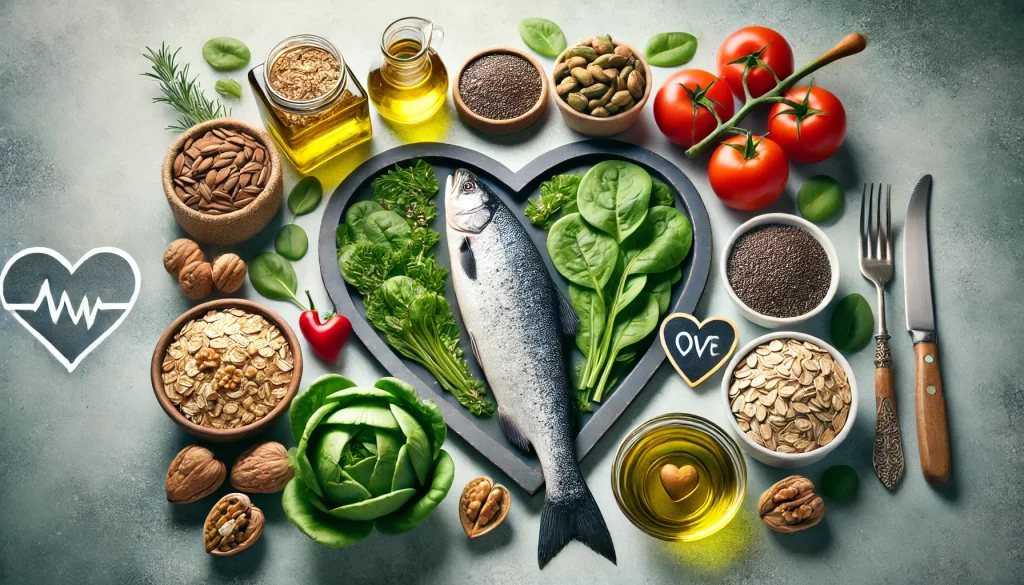
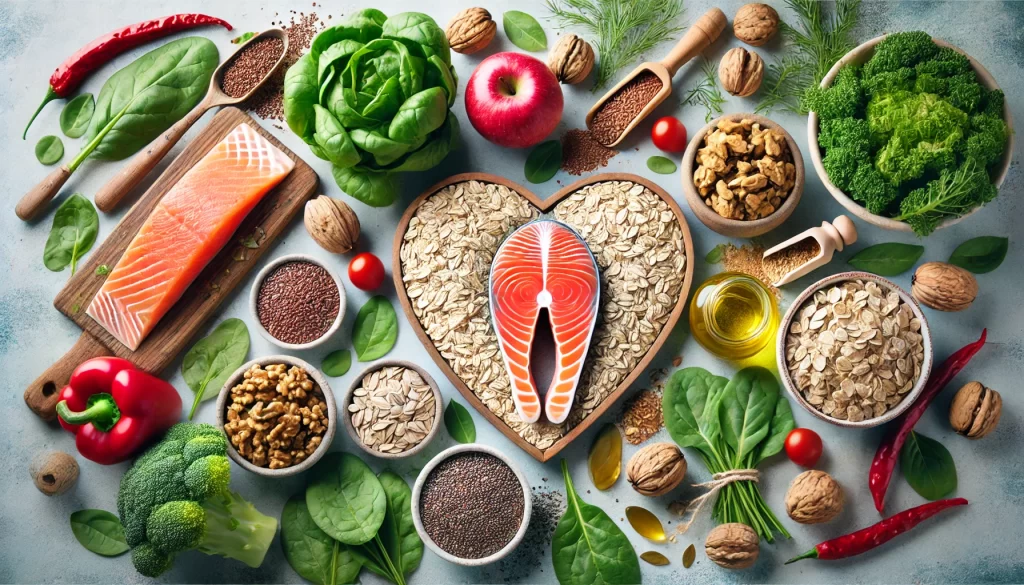
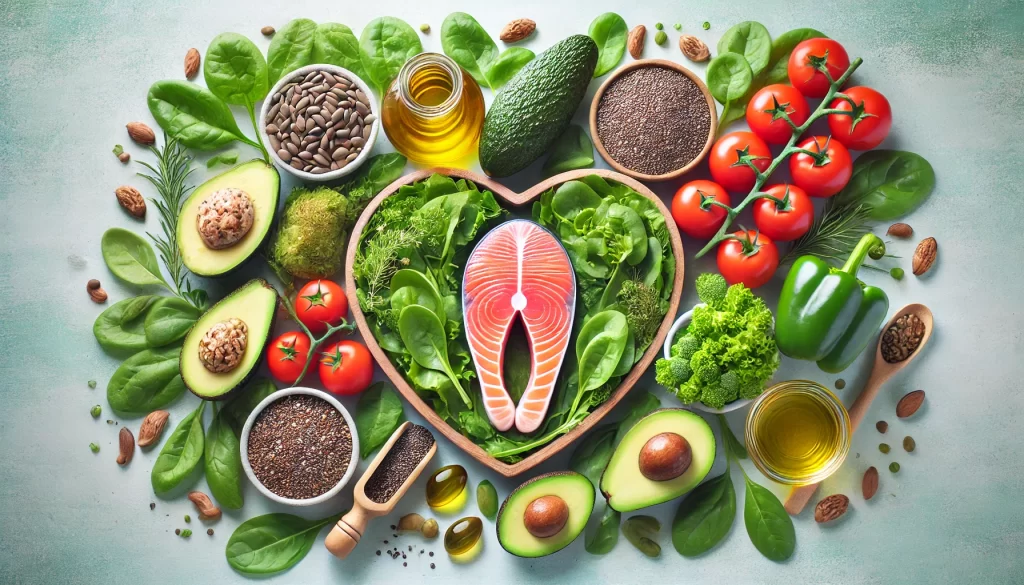
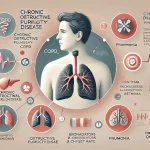
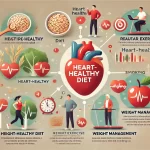
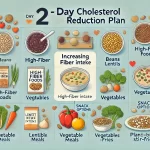

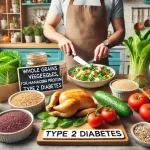

 Next Post
Next Post